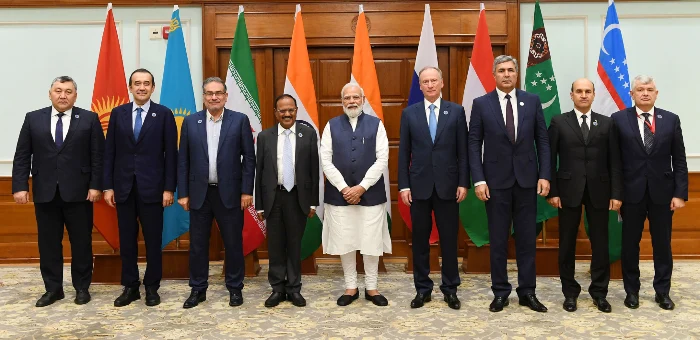Eight countries comprising India, Russia, Iran and all the five Central Asian Republics have in one voice called for a two-stage solution to the crisis in Afghanistan, which is facing internal turmoil after the Taliban took over the entire country in mid-August.
The Delhi Declaration following the Third Regional Security Dialogue on Afghanistan which was held on November 10 has called for forming of “an open and truly inclusive government” that represents the will of all the people of Afghanistan and has “representation from all sections of their society, including major ethno-political forces in the country.”
Today in New Delhi Secretary of the Russian Security Council Nikolai #Patrushev met with the National Security Adviser to the Prime Minister of India Ajit #Doval
https://t.co/yENx61ed7v pic.twitter.com/9GBJB4pF2k
— Russia in India
(@RusEmbIndia) November 10, 2021
It stresses that inclusion of “all sections of the society in the administrative and political structure is imperative for the successful national reconciliation process in the country”.
Analysts point out that the Delhi Declaration, has unambiguously announced that the Pashtun-dominated Taliban should first achieve domestic consensus on forming an inclusive government where the ethnic Tajiks, Hazaras and Uzbeks are adequately represented. Once this has been achieved, international recognition of a Taliban-led government can follow.

Earlier a meeting between host India, led by National Security Adviser, Ajit Doval and his counterparts from Tajikistan and Uzbekistan also stressed on staging a two-stage process to complete Afghanistan’s transition.
The trio agreed that the Taliban government must first seek recognition from Loya Jirga (tribal council) and the religious council before aspiring for international recognition.
Unsurprisingly, the Delhi Declaration emphasized the importance of ensuring that the fundamental rights of women, children and minority communities are not violated.
The conference spotlighted that the UN should play a “central role” in Afghanistan and that its continued presence in the country must be preserved. Observers say that the statement is important as it implies that no single country, especially Pakistan can play a dominant role in steering Afghanistan’s destiny. The formulation becomes especially important as soon after the Taliban’s takeover of Kabul on August 15, the chief of Pakistan’s Inter-Services Intelligence arrived in the Afghan capital to steer the formation of an interim government in which the notorious terror-tainted Haqqani network was in the driver’s seat.
Also Read: Kingmaker of Afghanistan, Pakistan’s Spy Chief Faiz Hameed could be the next army chief
During the conference, all participants highlighted that Afghanistan’s territory should not be used for sheltering, training, planning or financing any terrorist acts. They pledged in “strongest terms” their “firm commitment to combat terrorism in all its forms and manifestations, including its financing, the dismantling of terrorist infrastructure and countering radicalization, to ensure that Afghanistan would never become a safe haven for global terrorism”.




















